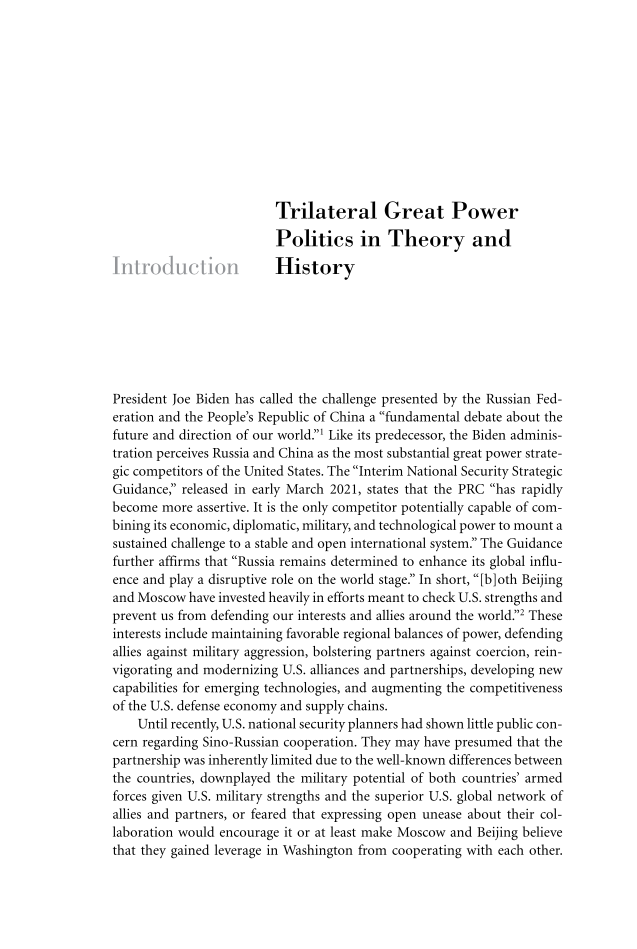President Joe Biden has called the challenge presented by the Russian Fed- eration and the People’s Republic of China a “fundamental debate about the future and direction of our world.”1 Like its predecessor, the Biden adminis- tration perceives Russia and China as the most substantial great power strate- gic competitors of the United States. The “Interim National Security Strategic Guidance,” released in early March 2021, states that the PRC “has rapidly become more assertive. It is the only competitor potentially capable of com- bining its economic, diplomatic, military, and technological power to mount a sustained challenge to a stable and open international system.” The Guidance further affirms that “Russia remains determined to enhance its global influ- ence and play a disruptive role on the world stage.” In short, “[b]oth Beijing and Moscow have invested heavily in efforts meant to check U.S. strengths and prevent us from defending our interests and allies around the world.”2 These interests include maintaining favorable regional balances of power, defending allies against military aggression, bolstering partners against coercion, rein- vigorating and modernizing U.S. alliances and partnerships, developing new capabilities for emerging technologies, and augmenting the competitiveness of the U.S. defense economy and supply chains. Until recently, U.S. national security planners had shown little public con- cern regarding Sino-Russian cooperation. They may have presumed that the partnership was inherently limited due to the well-known differences between the countries, downplayed the military potential of both countries’ armed forces given U.S. military strengths and the superior U.S. global network of allies and partners, or feared that expressing open unease about their col- laboration would encourage it or at least make Moscow and Beijing believe that they gained leverage in Washington from cooperating with each other. Trilateral Great Power Politics in Theory and History Introduction
Document Details My Account Print multiple pages
Print
You have printed 0 times in the last 24 hours.
Your print count will reset on at .
You may print 0 more time(s) before then.
You may print a maximum of 0 pages at a time.

























































































































































































































































































